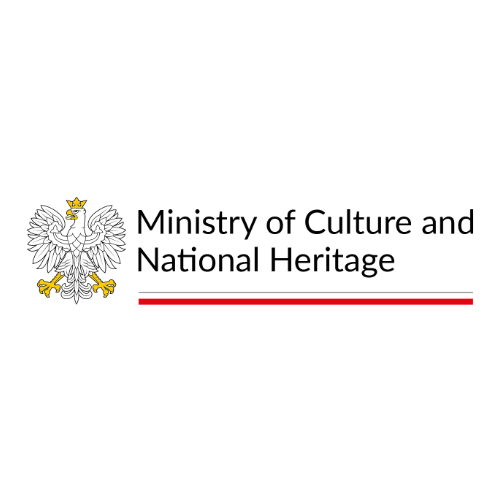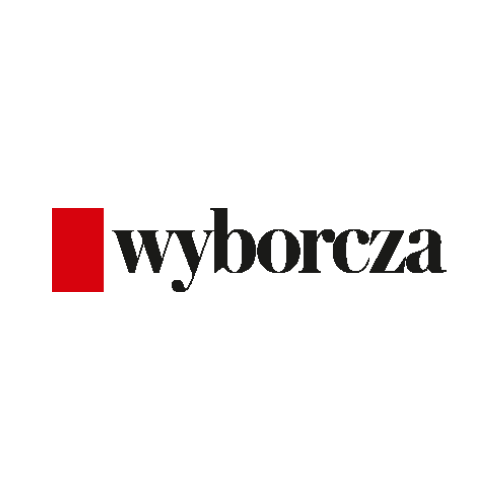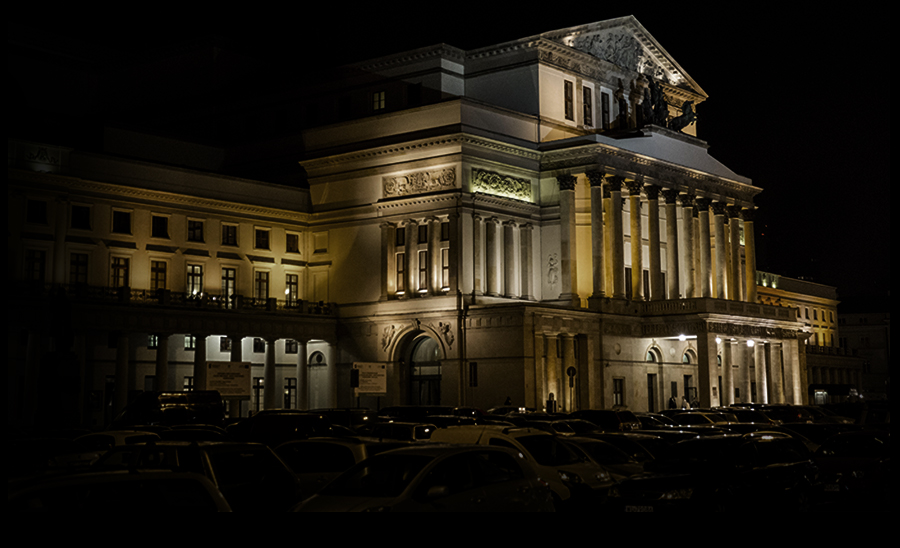Prometheus
Philip Glass, Wolfgang Amadeus Mozart / Krzysztof Pastor
Ballet in two acts
Music:
Philip Glass (Symphony No. 11 and Mad Rush)
Wolfgang Amadeus Mozart (Requiem in D minor)
World Premiere: 18 June 2025, Polish National Ballet, Warsaw
Let us briefly recall the main theme of this multi-layered myth. The Titan Prometheus stole fire from the gods to share this attribute of their power over the world with the ordinary mortals and contribute to the development of humanity. Enraged with the sacrilege, Zeus decided to wreck cruel revenge on the disruptor and humankind. He ordered Prometheus to be bound to the rocks of the Caucasus and would send an Eagle each day to eat his liver. The vital organ would grow back overnight and only to Prometheus’s suffering to begin again the next day. At the same time, the king of the Olympus decided to put humanity to the test: he ordered a stunningly beautiful and multitalented woman named Pandora to be created and gifted her with a mystery box as a dowry for her future husband. There was just one condition: Pandora was not to open the box under any circumstances. Prometheus’s gullible brother Epimetheus married Pandora, who proceeded to open the box to satisfy her curiosity, consequently releasing all the evils that have been plaguing humanity ever since. Luckily, the box also contained Hope, which remains inside the box to comfort humankind.
This is more or less the story that we know from the different Greek myths and legends surrounding Prometheus. However, the Promethean story lived on and developed in Western culture, inspiring different forms of artistic production. Prometheus became the epitome of noble resistance against tyranny and the symbol of heroic struggle for spiritual freedom and progress, as his story and services for humanity fired the imagination of poets, writers, painters, and sculptors for hundreds of years. For over two centuries now, he has also had a place in the history of ballet tanks to Italian choreographer Salvatore Viganò and Ludwig van Beethoven, who wrote the score for the former’s Viennese ballet performance titled The Creatures of Prometheus (1801). The story and the music was subsequently used by many other choreographers, yet in more recent times ballet creators started to feel restricted by the specific dramaturgy of the Beethoven score, as they wished to explore the myth in a broader dimension. One notable example is Maurice Béjart, who choreographed his Prometheus to a score by French composer Maurice Ohane.
Krzysztof Pastor chose a different path, choosing music by Philip Glass and Wolfgang Amadeus Mozart as the score for his take on the idea of the Promethean myth. The choreographer does not hide his fascination with the symbolism of Prometheus and his concern about the consequences of the Titan’s mythical act. In stealing fire from the gods and sharing it with humanity, he did propel the civilisational advancement of humankind, which nevertheless comes at the price of gradual degeneration of the world around. The new ballet promises to be a novel reinterpretation of the myth of Prometheus, his brother Epimetheus, vengeful Zeus, Pandora and her symbolic Box whose opening released so many evils that torment humanity. Undoubtedly, it will not be a straightforward adaptation of the mythical story but a poetic choreographic vision of the story and its relevance today.
The first act of the ballet, which directly references the myth, is set to music by Philip Glass, namely the first and second movement of the composer’s Symphony No. 9 separated by the piano piece Mad Rush. The second act is danced to Wolfgang Amadeus Mozart’s compelling Requiem. The deeply meaningful, timeless masterpiece can be interpreted in many ways with relation to different themes and concepts. In this case it will serve to reinforce the word of warning about the dangers of our times.
MY PROMETHEUS
My ballet is, on one hand, the story of Prometheus, the titan who stole fire from the gods, enabling humanity not only to warm itself and secure food but also to make enormous strides in civilization. In this context, fire symbolizes both power and civilizational progress. However, fire also represents the darker side of our times, embodying the destruction of the natural environment and the relentless, unchecked progress that pushes us toward disaster. This dual symbolism of fire – both as a force of creation and destruction – is reflected in the massive, uncontrollable wildfires that plague our world each year, the tangible consequence of unsustainable development.
On the other hand, the story also explores the theme of punishment. Zeus, the god of gods, decided to punish Prometheus for his defiance by chaining him to a rock and sending an eagle to eat his liver daily. Each night, the liver would regenerate, only for the cycle of torment to begin anew the next day, symbolizing the eternal suffering and sacrifice of an individual for the greater good of society.
Zeus, however, did not stop with Prometheus. He also sought to punish humanity for accepting the stolen fire. To do this, he ordered several lesser gods to create Pandora, a woman of extraordinary beauty and virtue, endowed with intelligence, musicality, and grace. Prometheus's brother, Epimetheus, fell deeply in love with her and decided to marry her. Cunningly, Zeus presented Pandora with a mysterious wedding gift for Epimetheus – a box, "Pandora's Box", with the strict instruction that it should never be opened. Yet, Pandora, unable to resist her overwhelming curiosity, opened the box, unleashing all the evils that would plague humanity forever: diseases, wars, hatred, plagues, pandemics, floods, torrential rains, and violent fires. Horrified by what she had done, Pandora quickly shut the box, trapping a small spark of hope at the very bottom – a hope that we carry with us, the belief that not everything is lost. This hope, fragile yet enduring, holds the power to either deceive us or save us all.
This is the essence of my Prometheus. Of course, the ballet will convey these themes in a more symbolic and metaphorical manner, using the abstract language of dance to explore these ideas poetically rather than literally.
Krzysztof Pastor
Polish National Ballet
Chorus and Orchestra of the Polish National Opera
Kuba Matuszczyk - pianist (Mad Rush by P. Glass)
VOCAL CAST IN REQUIEM:
Soprano
Justyna Khil 18, 21, 25 June
Izabella Fabrycka 20, 22, 27, 28 June
Tenor
Piotr Maciejowski 18, 21, 25, 28 June
Adam Walasek 20, 22, 27 June
Alto
Emilia Rabczak 18, 21, 25, 28 June
Nataliia Tepla 20, 22, 27 June
Bass
Filip Rutkowski 18, 21, 25, 28 June
Michał Romanowski 20, 22, 27 June
Cast
Credits
Sponsors
-
Ministry of Culture and National Heritage of the Republic of Poland
-
Patrons of the Polish National Opera
Partners of the Opera Academy
-
Partners of the Polish National Opera
-
Partner of the Polish National Ballet
-
Media patrons
-
Partner koktajlu





![[Translate to English:]](/fileadmin/import/media/img/SPEKTAKLE_KONCERTY/Prometeusz/Prometeusz_Pod_Spektakl_1920x1600.jpg)
![[Translate to English:] Plakat: Adam Żebrowski, zdjęcie: Łukasz Murgrabia, na zdjęciu: Ryota Kitai [Translate to English:] Plakat: Adam Żebrowski, zdjęcie: Łukasz Murgrabia, na zdjęciu: Ryota Kitai](/fileadmin/_processed_/8/3/csm_Prometeusz_B1_Prevka_a27ca372dd.jpg)
![[Translate to English:] [Translate to English:]](/fileadmin/_processed_/9/8/csm_PROMETEUSZ_-_teaser_ade7d12350.png)
 Patryk Walczak
Patryk Walczak  Chinara Alizade
Chinara Alizade  Paweł Koncewoj
Paweł Koncewoj ![[Translate to English:]](/fileadmin/import/media/img/ludzie/tancerze/medium/Vladimir_Yaroshenko_2024_-_kwadrat.jpg) Vladimir Yaroshenko
Vladimir Yaroshenko  Kristóf Szabó
Kristóf Szabó  Joanna Drabik
Joanna Drabik  Wojciech Ślęzak
Wojciech Ślęzak ![[Translate to English:]](/fileadmin/_processed_/4/1/csm_Anna_Czeszejko_www_2024_22af0e62d9.jpg) Anna Czeszejko
Anna Czeszejko ![[Translate to English:]](/fileadmin/_processed_/7/b/csm_Daria_Majewska_IMG_96401_-2025_7b9d7276a4.jpg) Daria Majewska
Daria Majewska ![[Translate to English:]](/fileadmin/import/media/img/ludzie/tancerze/ryota_kitai_2024_-_kwadrat2.jpg) Ryota Kitai
Ryota Kitai ![[Translate to English:]](/fileadmin/import/media/img/ludzie/tancerze/medium/JAEEUN_JUNG_2024_-_kwadrat.jpg) Jaeeun Jung
Jaeeun Jung ![[Translate to English:]](/fileadmin/_processed_/f/a/csm_marko_juusela_2024_-_kwadrat_0f90d30f2e.jpg) Marko Juusela
Marko Juusela  Marco Esposito
Marco Esposito  Nikodem Bialik
Nikodem Bialik  Marta Fiedler
Marta Fiedler ![[Translate to English:]](/fileadmin/import/uploads/tx_news/Carlos_Martin_Perez_new_02.jpg) Carlos Martín Pérez
Carlos Martín Pérez  Mar Bonet Sans
Mar Bonet Sans  Paulina Magier
Paulina Magier  Yume Okano
Yume Okano  Mai Kageyama
Mai Kageyama  Krzysztof Pastor
Krzysztof Pastor ![[Translate to English:]](/fileadmin/media/img/ludzie/dyrygenci/patrick_fournilier_fot_arch_artysty_-_kwadrat.jpg) Patrick Fournillier
Patrick Fournillier ![[Translate to English:]](/fileadmin/_processed_/6/5/csm_Tatyana_van_Walsum_370x370_5b7c75112a.jpg) Tatyana van Walsum
Tatyana van Walsum ![[Translate to English:]](/fileadmin/_processed_/2/a/csm_Klaus_Bertisch_czarno_biale_kwadrat_17efb4e747.jpeg) Klaus Bertisch
Klaus Bertisch  Jean Kalman
Jean Kalman  Bartek Macias
Bartek Macias  Łukasz Hermanowicz
Łukasz Hermanowicz  Simonetta Lysy
Simonetta Lysy 












 ''
''